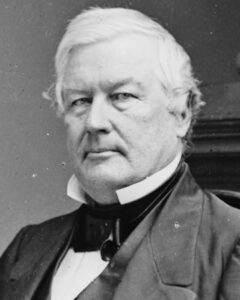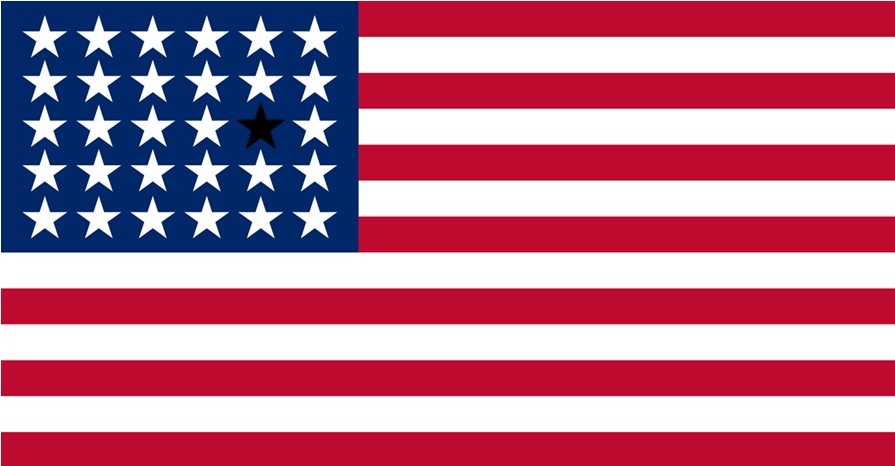As part of the Compromise of 1850, Whig (nationalist) President Fillmore signs the Slave Trade Suppression Act, prohibiting commerce in slaves in the District of Columbia.
NOTE: Among those who voted against abolishing the slave trade in the District of Columbia was Whig Representative Abraham Lincoln, of Illinois.
[restored 2/5/2022]
Whig President Fillmore—without a constitutional amendment—signs the Illinois Central Railroad Act, providing the first federal funds for railroad construction. The ICR is to run from Chicago Illinois to Mobile, Alabama and New Orleans, Louisiana.
NOTE: Article I, Section 8 [Clause 7] authorizes Congress to charter post-Roads, not subsidize them.
[restored 2/5/2022]
Subsequent Events:
Authority:
Article I, Section 8 [Clause 17]
ccc-2point0.com/constitution-for-the-united-states
“Law of the Jungle”
ccc-2point0.com/preface
References:
Railroad Act of 1850, 9 Public Statutes at Large 466 (1850).
Calvin D. Linton, ed. The Bicentennial Almanac: 200 Years of America, 1776-1976, (Nashville, Tennessee: Thomas Nelson, 1975), 139.
Livingston – A Moral Accounting of the Union and the Confederacy
mises.org/library/moral-accounting-union-and-confederacy
us events
www.duke.edu/~charvey/Country_risk/chronology/us-events.htm
EARLY AMERICAN CORPORATE REPORTING AND EUROPEAN CAPITAL MARKETS: THE CASE OF THE ILLINOIS CENTRAL RAILROAD, 1851-1861
findarticles.com/p/articles/mi_qa3657/is_200606/ai_n17173550/pg_2
Illinois Central Railroad – Wikipedia
en.wikipedia.org/wiki/Illinois_Central_Railroad


